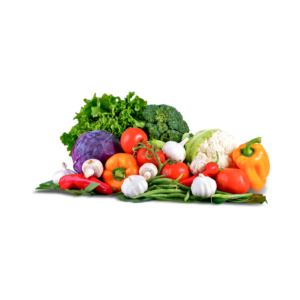Quality of Foods by Whitney Vaughan

[adning id=”33097″]
Overall health and wellness comes from the quality of foods we eat. High quality foods consist of whole, unprocessed (or minimally processed) foods. If you can remember back to an article I wrote a few weeks ago, processed foods are going to be any food that is not in it’s natural state due to any type of refining, etc.

Eat Real Foods
The best recommendation I can make is to eat real foods such as meats, vegetables, nuts & seeds, some fruit, little starch and no foods with added sugars. If you follow this recommendation then it will reduce the amount of refined, processed foods you’re eating as well as reduce the overall carb intake. Studies show that an excess consumption of refined or processed carbs is linked to chronic diseases. High amounts of carbs can lead to insulin resistance which can cause chronic disease.
Vegetables contain small amounts of digestible carbs and a significant source of fiber. How do these two things affect your body? Digestible carbs are what I like to call “impact carbs” meaning they are the carbs that are added up and count towards your total daily carb intake. We also refer to these at net carbs. So, since vegetables have little amounts of net carbs than we’re able to intake more on a daily basis. Fiber passes through our intestinal tract and clears things out for us. It also helps regulate hunger and blood sugar. Blood sugar is linked to insulin and because we do not want to build an insulin resistance, that’s another reason why vegetables are recommended over other carb sources.

Some vegetables, such as potatoes, green peas and corn, are considered to be “starches”. Starchy foods are highly digestible which means they’re going to count for more of those “impact” carbs each day. They also have a lower density of vitamins and minerals than other vegetables, meats, and fruit. This is why it’s recommended that you have “little starch” in your diet.
Fruits are a great sources for fiber, vitamins and minerals. They also provide our bodies with glucose (our bodies main source of energy) and fructose (natural sugars that are bodies breakdown more easily). When we consider our total daily carb intake, fruits will have more net carbs than vegetables do because of the natural sugar found in most fruits therefore it’s recommended that you have “some fruit” in your daily diet.
[adning id=”33207″]
Nuts and seeds are the best source for the fats our bodies need. It refers to walnuts, almonds, peanuts, pecans, coconuts, olives, avocados, etc. I prefer to cook or bake with coconut oil, olive, or avocado oil due to the healthier benefits they provide over industrials oils. These types of fats provide us with vitamins and minerals, but also help maintain hormone function.
Protein in your diet is huge. The best forms of protein come from animal protein, eggs and seafood. If you’re vegan, you can find sources of protein lentils, beans, and tofu. Protein is our muscle building block and it helps burn fat.
Some foods you’ll want to try to avoid if you’re considering eating healthier are foods with added sugars (you can find this information on the nutritional facts label of packages), industrial oils such as vegetable, corn, canola, sunflower, and soy oils, foods with preservatives (most foods found on the shelves of the inner part of your grocery story) and food with added dyes or coloring.
Putting This Into Effect

The next time you’re in the grocery story, see how much of your groceries come from the perimeter of the store. How many foods have you added to your cart that are from nature? Do the majority of your foods last for months in the cabinet or do they go bad if not consumed quickly? Did you check the ingredients to see how many “things” are in your food? (The fewer things listed, the better.)
Keep these things in mind when grocery shopping because this will help you stay on track to buying high quality foods and keep you on your way to living a healthier, more fit lifestyle.
Submitted by Whitney Vaughan
[adning id=”33207″]














